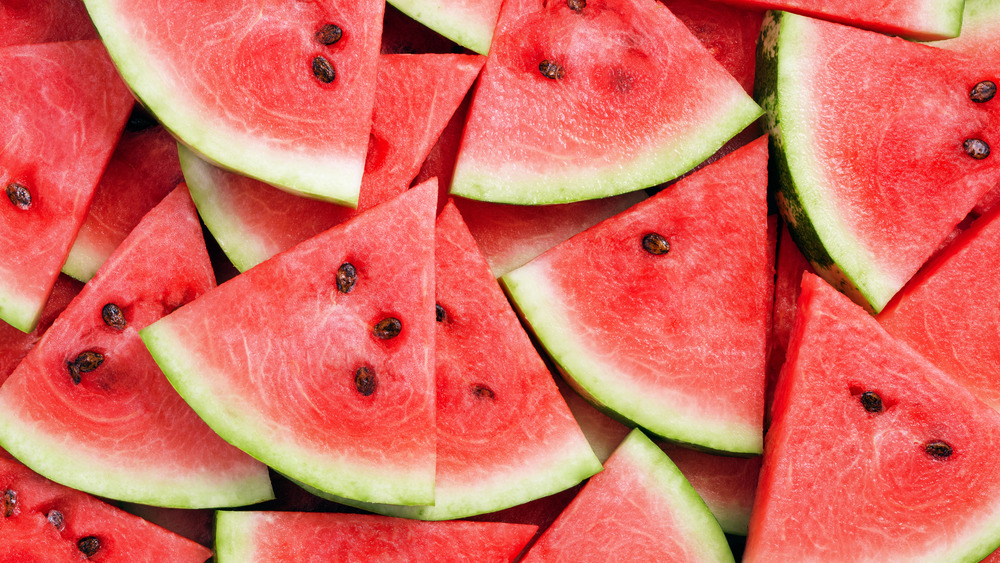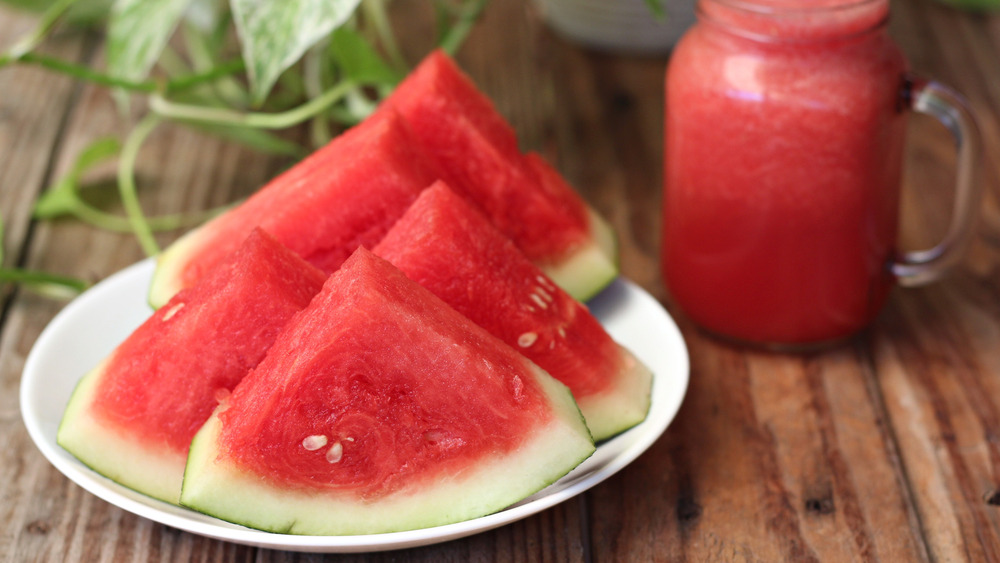Is It Possible To Eat Too Much Watermelon?
Watermelon is a healthy and refreshing fruit. Sweet, hydrating, and very low in calories, it's no wonder that it's a favorite summer snack for many people. The tasty fruit boasts a wide variety of health benefits. While it is pleasantly sweet, it contains just 46 calories per cup, which makes it the perfect delicious dessert for those who are watching their calorie intake. It is also high in many essential vitamins, like vitamin A, vitamin B6, vitamin C, and potassium, which improve heart health and can help protect against cell damage and inflammation.
Watermelon is also a great source of other valuable nutrients, including the amino acid citrulline, which promotes healthy circulation, and the antioxidant lycopene, which has been shown to reduce the risk of cancer, heart disease, and inflammation, per Live Science. Additionally, that bite of watermelon contains fiber, which, combined with its high water content, can help improve digestive health, according to Healthline. All of this makes watermelon sound like the perfect food, but is there such a thing as too much of a good thing? While there are very few side effects for most healthy people, eating too much watermelon can have some downsides.
Eating too much watermelon can have side effects
Watermelon's high potassium level is a plus for people who do not get enough of the nutrient, but too much potassium is not good for the body. In rare cases, consuming too much potassium can lead to a health condition called hyperkalemia, which can have pretty serious side effects, according to Medline Plus. This is known to happen in individuals whose kidneys have trouble filtering out excess potassium, either because of an illness or as the result of some medications. People who suffer from hyperkalemia can experience nausea, chest pains, difficulty breathing, and heart palpitations, so individuals with high potassium levels will definitely want to limit their watermelon intake.
Additionally, lycopene is also healthy in moderate doses, but can cause issues in high amounts. Eating more than 30 mg of lycopene has been shown to cause gastrointestinal distress, gas, bloating, and indigestion, per Live Science. Additionally, watermelon is high in fructose, which may also lead to stomach issues in high does, per Eat This Not That. For most people, it would take quite a bit of watermelon to reach this point, but those with sensitive stomachs may want to be extra mindful of the amount of watermelon they consume.
For most people, watermelon is a healthy choice that provides many important vitamins and minerals. It can be a nutritious and tasty snack, but, like most foods, moderation is the key to ensuring you get the most benefits out of the satisfying fruit.

